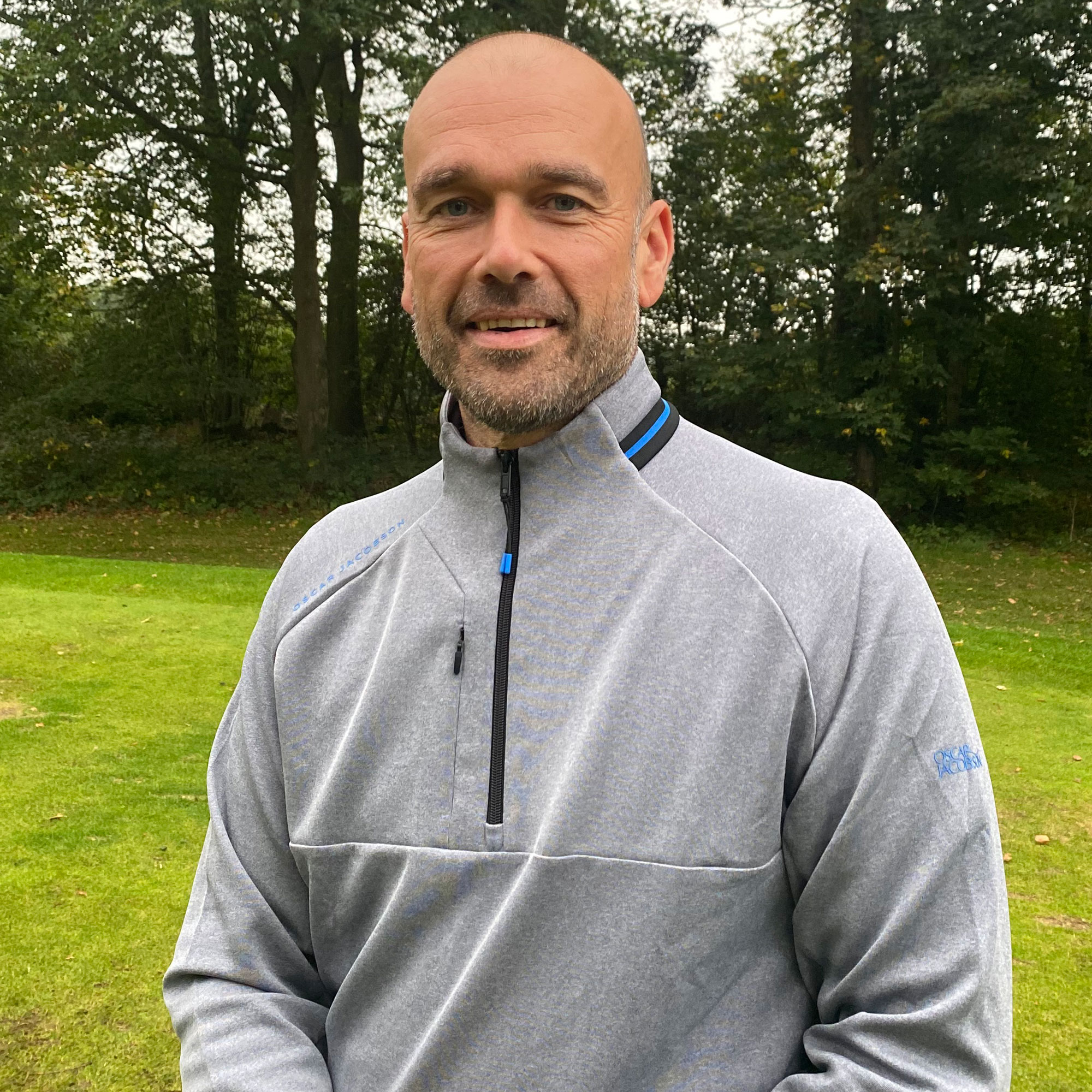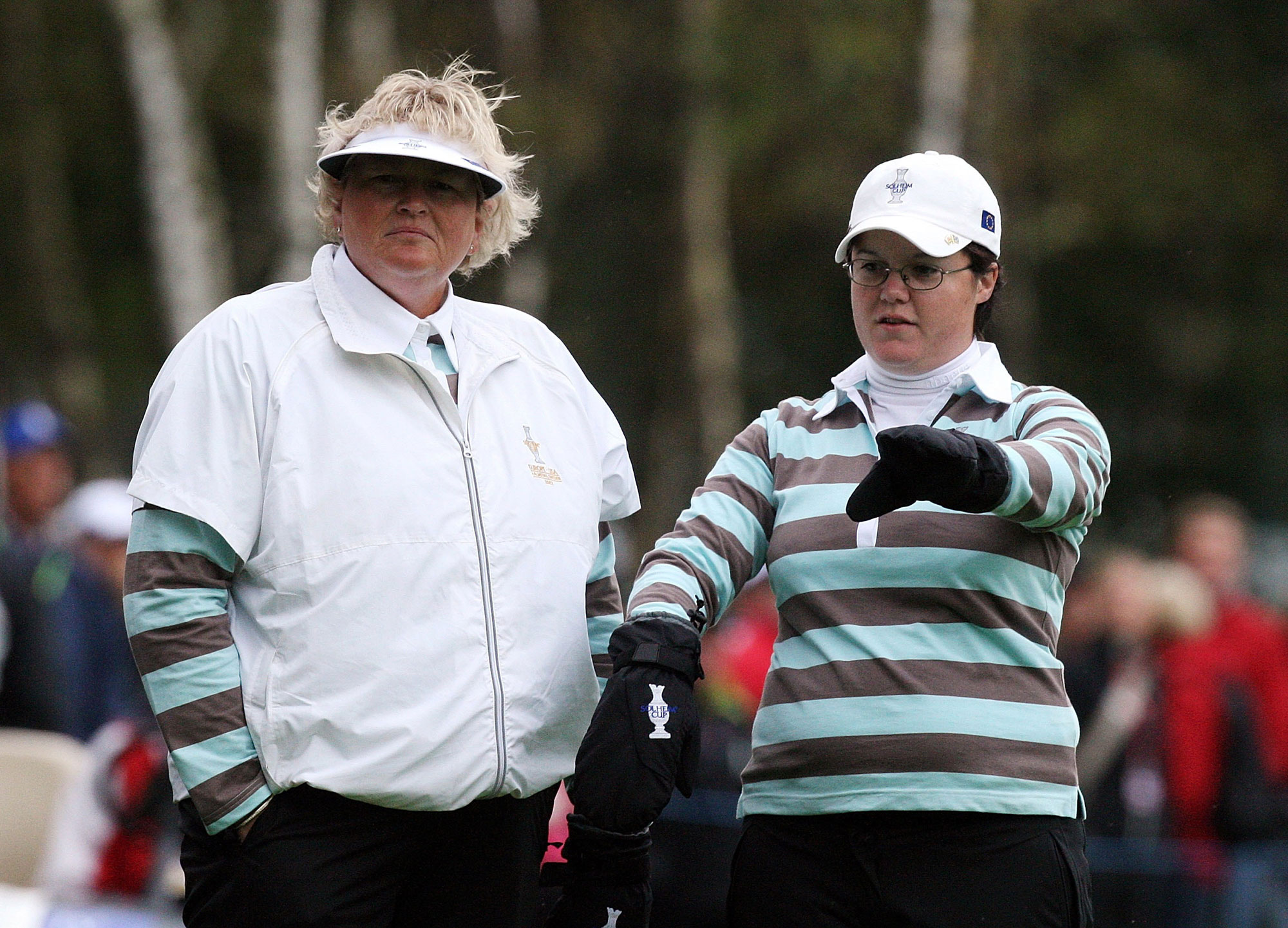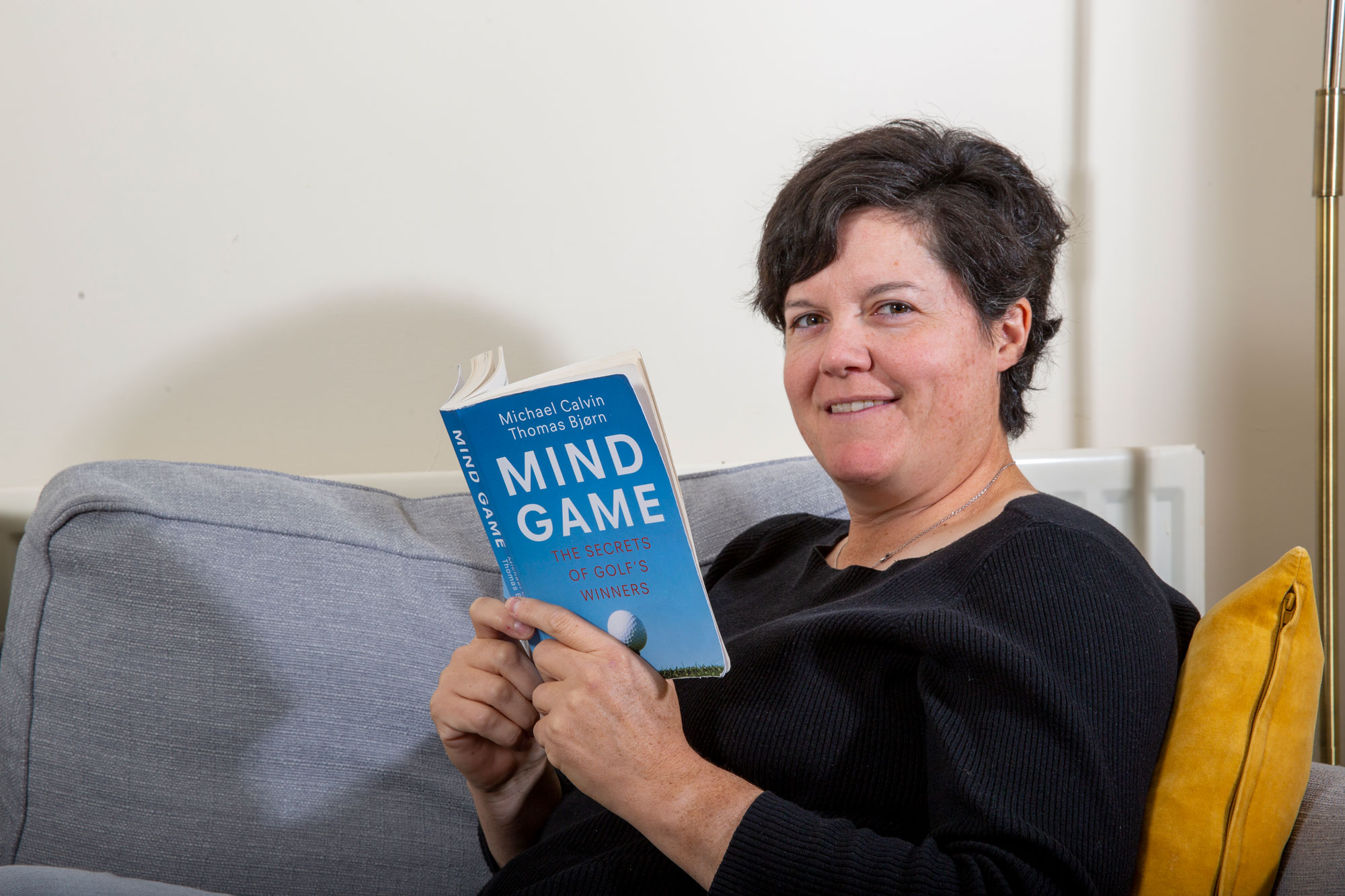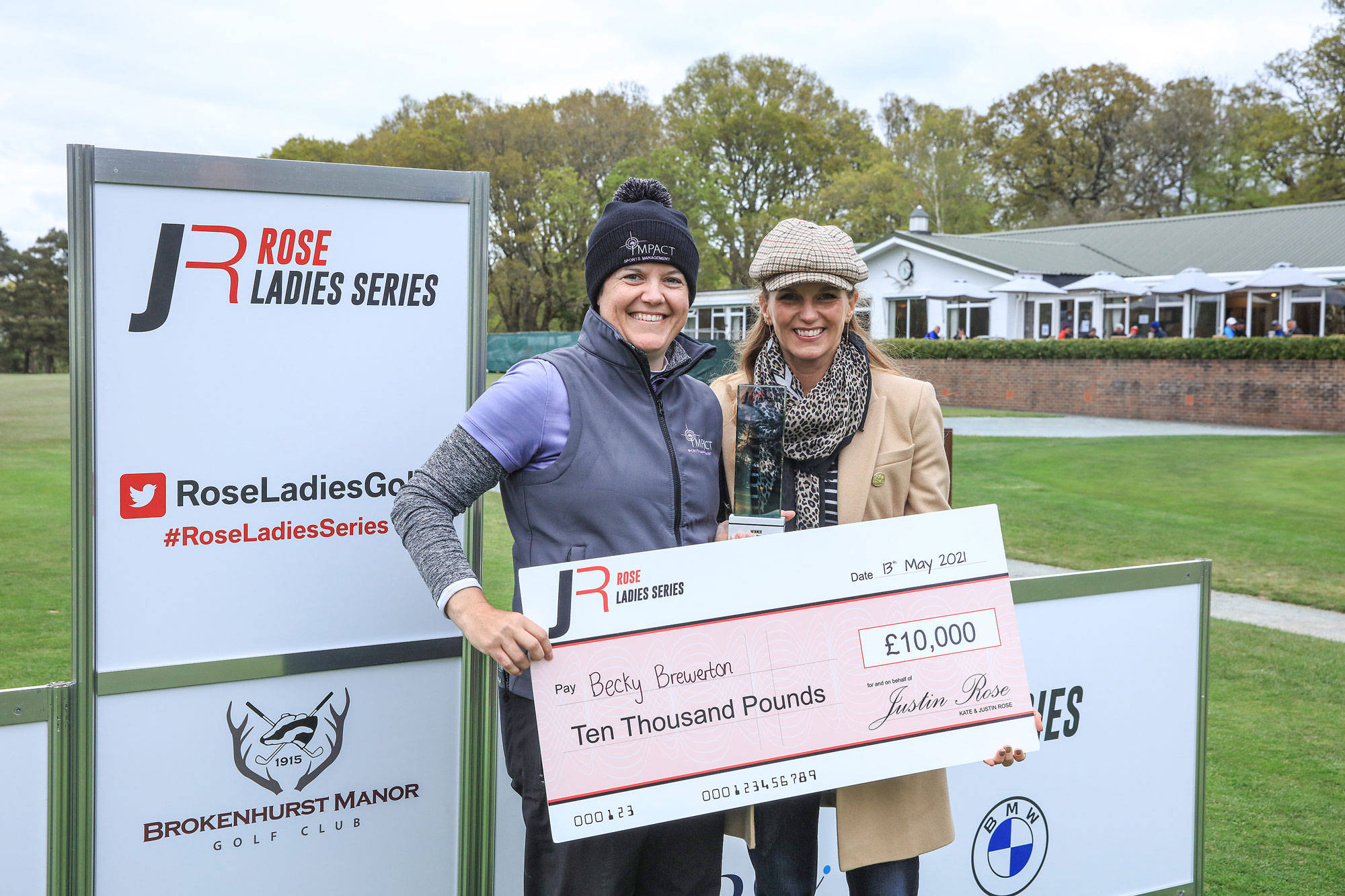'I Just Wanted To Enjoy Golf Again' – Becky Brewerton On Beating The Yips And Her Harrowing Decline
The 39-year-old has got her game back on track after regaining her Tour card – and says there is now 'closure' after overcoming her dramatic loss of form


“It hits you like a brick,” says Becky Brewerton as she gathers her emotions. “I’m hoping this will be the week; the week where it all changes. But every week is the same. Monday and Tuesday, I feel fine. Then, as the clock ticks down to Thursday, I can feel the pressure building. It hits me as I walk to the first tee and I realise it’s happening again. I feel terrified – but by now it’s too late.”
There is a long pause as Brewerton takes a moment. We have been speaking for nearly 40 minutes and there have been a couple of ‘moments’ – but none seem as significant as this one. It is hardly surprising, as the 39-year-old continues to pore over the last ten years of a career that has been the absolute definition of ‘two halves’.
Brewerton joined the professional ranks in 2003, with her reputation and glittering record as an amateur turning heads from the word go. By 2009, she was a multiple winner on the Ladies European Tour with two Solheim Cup appearances. Not yet 30, she was, just as everybody expected, going places – and she was always up for the fight.
Twelve years later and Brewerton is still fighting, but after suffering a harrowing decline in form it is a battle of a different kind these days and one, thankfully, she is finally winning after regaining her Tour card at the LET’s Q-School in December. Her tied ninth-place finish, taking one of the 20 cards at La Manga, was one of the most heart-warming tales of the year.
Related How Becky Brewerton restored my faith in interviewing golfers
Related Golf in 2022 – A look ahead to what's what in the pro game
For a bit of context, Brewerton’s story came to light in November when she wrote an emotive blog – titled How did I become so bad at golf? – about how her game had sunk to such depths that she did not want to play anymore. This is not strictly true; she was desperate to play, but golf had become such a struggle that just getting through 18 holes would put an immense strain on her mental state. Self-conscious, embarrassed and struck down by a vicious case of the ‘yips’ – from the tee, not on the greens – the outlook was bleak to the point she had accepted her life as a professional golfer was over.
Get the Golf Monthly Newsletter
Subscribe to the Golf Monthly newsletter to stay up to date with all the latest tour news, equipment news, reviews, head-to-heads and buyer’s guides from our team of experienced experts.
“I reached a point where I had come to terms with the fact that it was the end,” Brewerton says before another pause. “But I was determined to do one thing before I died, and that was to enjoy a round of golf again.”

Becky Brewerton with Laura Davies at the 2007 Solheim Cup
Warning signs
It was June 12, 2011 when Becky Brewerton tapped in for a closing-round 68 to win the Tenerife Ladies Matchplay. At 28, the victory – and the £35,300 in winnings – was merely another step on her journey to being one of Europe’s top players. Although the season had been relatively low key, her ten-year exemption off the back of a stunning 2009 had given her the security to continue building. But six months later, a hip injury curtailed the start of her 2012 campaign. Little did she know at the time, but it would prove to be the trigger for a dramatic collapse in form.
“I was out in Spain practising, building up for the Australia swing in January with a bit of warm-weather training,” Brewerton says. “I went for a bike ride and I came to a corner and hit a stone in the road, and went flying over the handlebars and landed right on the edge of the kerb. I had pushed some of my muscle into my hip joint.
“It was a week until I flew to Australia, and I went there and really struggled, comfortably missing the cut in every event. But still, I am just thinking it’s a physical thing and I’ll get over it.”
Searching for answers and quick fixes that weren’t there, Brewerton would read about other sports stars who had suffered an injury which had unearthed deeper issues, like a gene defect that had been lying dormant. The accident had triggered something and it was now a mental problem she had no control over.
Fear of failure
Externally, the bruising and cuts had long since healed, but internally, Brewerton was in pieces. Indeed, she didn’t complete an LET tournament under par until returning a fourth-place finish at the Sanya Ladies Open the following November. That result may have appeared to spark her back into life, because a month later she closed out the Dubai Ladies Masters with weekend rounds of 68 and 65 to finish third. But even such a high could not mask what was really going on – the seeds of doubt had now manifested into outright fear as a result of the yips.
So bad was the decline as her game decayed away that Brewerton admits to pretending to be ill before one or two tournaments so she could withdraw. Even playing in a pro-am would prove exhausting, shooting in the mid-80s and knowing what was coming a day later. “I was just so embarrassed,” she adds. “I’m not the first player to pull out of an event, but I thought if I carried on I would shoot a score that meant I could never show my face again.
Brewerton adds: “There was a time in Slovakia where the practice ground was to the left of the first tee, out of bounds. ‘Just hit it right’, I would tell myself. ‘Hit it on to the adjacent fairway’. In my head I tried to do that, but of course the ball just flies left and out of bounds. I had convinced myself that everyone was laughing at me.”

'There are so many people who supported me – they are friends for life'
Helping hand
During this time, the lack of results meant Brewerton was not earning anywhere near enough to fund her life as a professional golfer, with a heavy expenses load. If she wasn’t struggling at a tournament, she would be working in an office back home, doing, as she says, “bits and bobs just to keep her busy”. After wrapping up her day there at 5pm, she would do a four-hour shift as a delivery driver for Amazon. The initial aim was to earn enough money so she could head off to play golf, but the overall objective was to keep herself busy so she did not have to process how her golf game was unravelling.
Then, through her trusted friend Meghan MacLaren, Brewerton would meet ‘Alan’ (a performance coach who would prefer to not reveal his surname for client confidentiality reasons). He immediately identified that she was suffering from burnout – one of the worst cases he had seen, which had sparked her yips. Alan suggested a year off from golf, but Brewerton could not commit to that with sponsorship from her coaching commitments, which she admits was the only decent revenue stream she had. So a compromise was made and they headed off to the States for eight weeks. The focus was on herself and her mindset. Hitting golf balls would have to be secondary.
“We had to change the belief system I had about myself,” Brewerton says. “I would always start a sentence with something like: ‘Well I’m not being funny but how do you expect me to do that?’ I felt inadequate about my game. It was hard, but my state of mind was in a bad place. Slowly, it started to improve with the work we were doing. We would talk about my practice sessions, but we would also look at what I was doing when I wasn’t practising. It was taking time, but I could feel a change in the way I was inside.”
Brewerton points to the support she received elsewhere, with close friends and fellow players rallying, while her long-time physical trainer, Steve Bond – whose family she would live with as she got herself back on her feet – was an “absolute rock”.
“People went above and beyond to help me,” she says. “These people, like Steve, have become my second family. I pretty much didn’t have anywhere else to live. I had given up, not just on my golf, but on myself. I was vulnerable. Thank God I had these people around me, because I have seen so many players come and go who have been struggling, but they never had that support.”

Turning the corner: Winning a Rose Series event in 2021 gave Brewerton extra confidence
Regaining the spark
Results were slow to improve, but Brewerton could see hope, and by the start of last year she was beginning to feel more positive. She won a Rose Ladies Series event in May despite still struggling with her first-tee yips. “I played some of the par 4s as par 5s, irons off the tee. You could see I was still fighting it, but I just grinded it out to win,” she says.
There would still be a few slips, like when she pulled out of the World Invitational in August due to a bout of nerves and fear. But after taking a short break, something “flipped” in her mind with a notable change in her outlook and through September to November, the clouds would start to lift. Then, playing in Saudi Arabia where she finished 28th in the Saudi Ladies International, Brewerton knew the final hurdle had been negotiated.
“Those two weeks in Saudi, I just felt good,” she says. “There was this freedom. That is what made me write that blog and open up about everything. Getting these feelings off my chest, it feels like closure; it feels like there is an end to this chapter. I feel self-sufficient now. I have played that ‘one’ round where I was happy.”
With her Tour card now secured, even happier times lie ahead for Brewerton. There can be few golfers who deserve it more.


Alex began his journalism career in regional newspapers in 2001 and moved to the Press Association four years later. He spent three years working at Dennis Publishing before first joining Golf Monthly, where he was on the staff from 2008 to 2015 as the brand's managing editor, overseeing the day-to-day running of our award-winning magazine while also contributing across various digital platforms. A specialist in news and feature content, he has interviewed many of the world's top golfers and returns to Golf Monthly after a three-year stint working on the Daily Telegraph's sports desk. His current role is diverse as he undertakes a number of duties, from managing creative solutions campaigns in both digital and print to writing long-form features for the magazine. Alex has enjoyed a life-long passion for golf and currently plays to a handicap of 13 at Tylney Park Golf Club in Hampshire.
-
 Volvo China Open 2025 Picks, Odds And Predictions
Volvo China Open 2025 Picks, Odds And PredictionsFollowing a break for The Masters, the DP World Tour returns for the final two weeks of its Asian Swing and the Volvo China Open is the penultimate event
By Jonny Leighfield
-
 Rory McIlroy's Sports Psychologist Explains Why He 'Didn't Talk' To Bryson DeChambeau In Masters Final Round
Rory McIlroy's Sports Psychologist Explains Why He 'Didn't Talk' To Bryson DeChambeau In Masters Final RoundDeChambeau raised eyebrows at Augusta National when claiming that McIlroy wouldn't engage in conversation during the final round of The Masters
By Jonny Leighfield